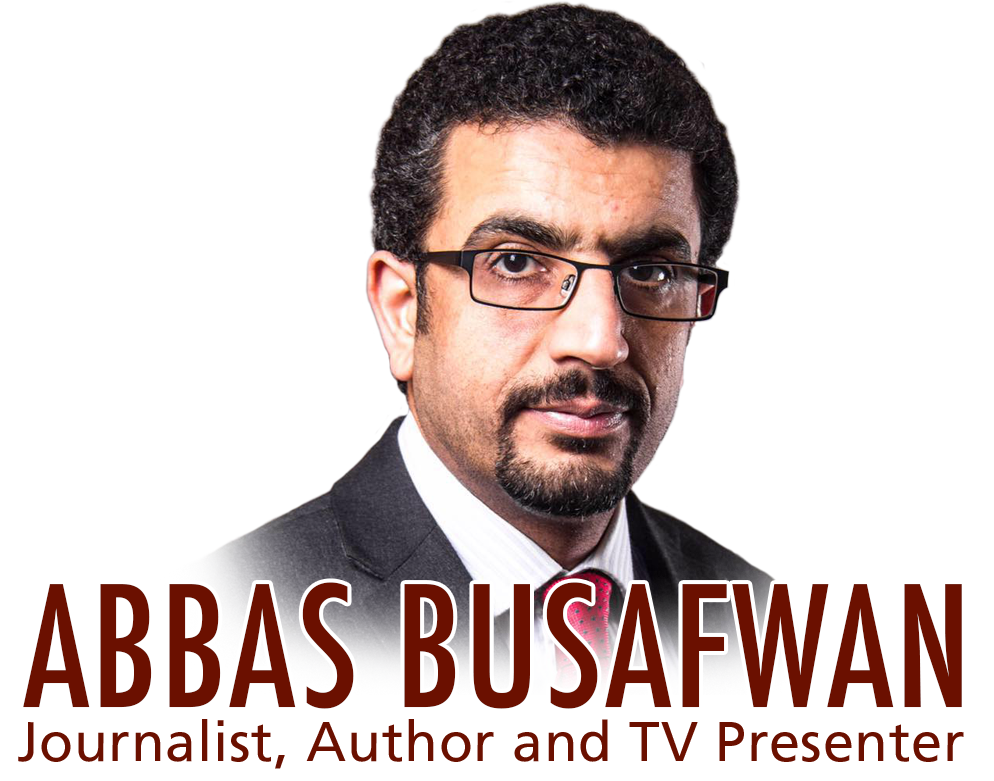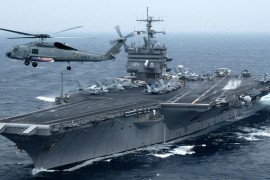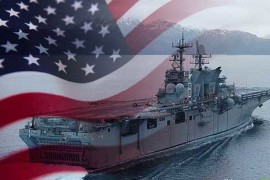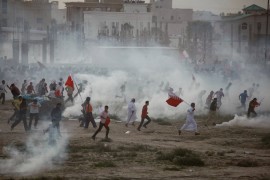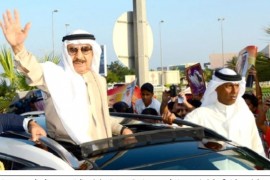All opposition parties believe that British support for the ruling Al-Khalifa family in Bahrain exceeds American support, and the obstacle faced by the opposition diplomacy in promoting their aspirations towards democracy abroad is actually in London and not in Washington. At least the difficulty faced in the British capital exceeds that in the American capital, where there is a negative attitude from the British towards the demands of democracy in Manama. Furthermore, a progressively escalating vocabulary, which is supported by the British capital more than any Western capital, is now in favor of a security solution in the face of these demands.
This point seems to be agreed upon from all types of opposition members, from the extreme right to the extreme left: claimants of a constitutional kingdom or those advocates calling for a shift towards a republic, soft or hardcore members, moderates or extremists, advocates of participation in the elections or those calling for boycotting them, and opposition members inside the country or those forced to live abroad. All these categories disagree on many points, but they completely agree, by up to 100%, that Britain is “the head of evil” and the biggest supporter of the Al-Khalifa regime, against peaceful unarmed advocates of equality and justice.
So, hardly any classification of oppositionists disappears when there is talk about the Western attitude of the Bahraini issue. All opposition members complain about London: its tough stance in rejecting the opposition’s propositions and it being an absolute supporter of the system.
The issue of unanimity provokes the enthusiasm for debate, for methodological reasons on one hand relating to the need to test this unified agreement and verify its credibility, and as an operational process, on the other hand relating to the need to check this hypothesis, which seems well established in the minds of all (and I repeat, all) members of the opposition, including leaders, or those classified as second or third grade.
“The head of all evil”
The most important aspect here concerns the practical consequences of this hypothesis such as speeches and events (rather than strategies and tactics) held by the opposition as part of their international diplomatic work. Therefore, any wrong diagnosis of a problem, if any, will inevitably lead to wrong resolutions.
Of course, I am not going to accept this hypothesis or reject as much as I will try to discuss it in order to reach a conclusion that might perhaps be helpful in stimulating the opposition diplomacy on the international level. Currently, this diplomacy is still weak, hesitant, and conservative due to structural and objective reasons.
The reasons for those believing in the “reality”, (not a theory!), of Britain being the “head of all evil” rather than the United States of America are based on a set of citations, and I will refer to some of them here:
1. London rarely condemns the actions of the Manama government against internationally recognized citizens’ rights such as the right for assembly and freedom of expression, unlike the United States, which has long emphasized on the rights of the people of Bahrain to peaceful sit-ins and demonstrations. In parallel, Britain appears much less concerned, compared to Washington, about human rights violations, that the Al-Khalifa regime is accustomed to practice. For instance, while America continually demanded the release of the international human rights advocate Nabeel Rajab (arrested in early October 2014) through high level officials such as the US Ambassador to the United Nations Samantha Power (tweeted on October 18, 2014), the United Kingdom mentioned that it is closely monitoring the case of Rajab through a statement by Parliamentary Under-Secretary of State for Foreign and Commonwealth Affairs Tobias Ellwood (October 28, 2014).
2. The UK is leading support campaigns for the Al-Khalifa regime on both Western and international levels. For instance, the British Ambassador to Bahrain, Iain Lindsay, led four Western embassies (France, Germany, Italy, in addition to the United Kingdom) in Manama to sign a statement, expressing their disappointment for the opposition’s (Al-Wefaq Islamic Society’s and other association) boycott of the upcoming parliamentary and municipality elections in November 22, 2014 while the US ambassador did not sign the statement mentioned.
3. US President Barack Obama had repeatedly talked about the importance of dialogue and reform in Bahrain, including his speech on the United Nations’ platform, where he mentioned the need for dialogue between the Al-Khalifa authorities and Al-Wefaq (September 2012). Obama also included Bahrain among the countries living in sectarian tension such as Syria and Iraq (September 2013). On the other hand, the British Prime Minister, David Cameron, rarely talks about a similar stance, but kept on expressing his support for the regime in Bahrain without hesitation.
4. President Obama does not seem willing to meet the King of Bahrain, while King Hamad visited London several times in years following the so-called Arab Spring. The opposition assumes this evidently shows the difference between America’s leniencies to support some of Al-Khalifa policies compared to Britain’s enthusiasm.
5. It is not easy for Bahraini opposition members to meet with officials of the British Foreign Ministry at a time when both US Assistant Secretary of State for Democracy, Human Rights, and Labour, the former Michael Posner and the current Tom Malinowski, have shown great enthusiasm to meet the leaders of the opposition, to the extent that Malinowski hastily met with Secretary General of Al-Wefaq last summer before meeting public officials. This led authorities in Manama to expel the American diplomat offensively.
6. Well-known British bodies closely linked to the ruling regime in Bahrain have hosted several sessions for parties involved in the Bahraini issue. These sessions brought together loyalists and oppositionists in the discussions that took place at Chatham House under programs that seemed to be related to training. Next Century organization was at the forefront of these sessions that led the opposition and loyalists to familiarise themselves with the experience of Northern Ireland and South Africa in national reconciliation. America, on the other hand, did not take similar efforts and does not keep good relations with the pro-regime partisan authorities. It is believed that such programs are only aimed to contain the opposition, waste time, increase public relations, and claim the continuation of dialogue that have not been productive in solving the country’s worsening problematic situation.
7. It seems the British effort is evident in the restoration of security institutions: its experts lead the training of the notorious security, and we recall the task entrusted to the former Commissioner of British Metropolitan Police, John Yates, who was appointed as the so-called reformer of the police at the end of 2011, following the release of the Bassiouni report recommendations that acknowledged the prevalence of systematic torture and the rule of the culture of impunity. British police (Scotland Yard) have also been involved, in July 2012, in some security investigations in Bahrain, and specifically in the case known as “5 tons explosives”. (The British officer, Ian Henderson, was one of the most important components in establishing a violent security approach since the sixties until the turn of the millennium).
8. The British promise as advancement in the Al-Khalifa judicial institution, which is associated with a lack of integrity and independence, through training by specialist Britons, as well as an improvement in the status of prisons through the establishment and support of the Bahrain Commission of the Rights of Prisoners and Detainees (a delegation from Britain visited Bahrain to inspect prisons, at the end October 2014), and other numerous superficial actions that concentrated in the human rights dimension. Observers believe that all these steps do not add real reforming value to the deplorable conditions of the island.
9. British authorities have gone too far in harassing Bahraini activists who are political refugees in the United Kingdom, to the extent that two were put on trial, Qasim Al-Hashemi and Abdul Raouf Al-Shayeb under penalty of the Terrorism Act, as well as the extensive and lengthy investigations that continue for several hours for activists who return from trips outside the British territories.
10. British authorities base their absolute support of the Bahraini regime because it is a strategic ally, as described by the British government and parliament, and therefore it should not be allowed to collapse, become unstable, or lose control.
11. The negative British influence extends to the European Union. Europeans officials are repeatedly mentioning their dependency on the British assessment of the situation in Bahrain.
Britain still welcomes the King’s son
The mentioned points make Bahraini opposition, without exception; believe that London has a negative stance towards the opposition, its leaders, and its propositions. While the US is more positive regarding the calls for reform, it is still biased to the absolute power in the country, the King. Neither the US nor Britain, mentioned in some official letters from London, view the King as a role model. Taking into account the existence of an active Bahraini community in London should have a more pronounced impact in curbing British radicalism, but what is happening is the opposite.
Britain still welcomes the King’s son, Nasser bin Hamad, despite international accusations of torture and the British Foreign Office reports are still soft when pointing to abuses but still promise reform, which is supposed to take decades in its consideration!
So, what is true regarding London’s stance towards the democratic demand in Bahrain? And how is it associated with that of America? Is the United Kingdom actually moving away from Washington’s approach, which is the leader of the Western world?
